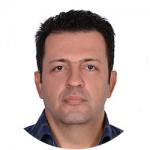Research students
Zefu (Jeffrey) Huang

ARC Doctor of Philosophy Scholarship.
Research topic: Development of High-Performance and Low-Cost Sodium-Based Rechargeable Batteries for Grid Electricity Storage.
The extensive use of renewable and green energy resources becomes a favourable solution worldwide to reduce the usage of fossil fuel and other traditional energy sources for relieving global environmental pollution. However, green energy sources such as wind and solar are quite intermittent and weather/season dependent. For providing continuous and affordable energy to our communities, the development of stationary electrical energy storage (SEES) systems is critical and imperative. Sodium-sulphur (Na-S) battery can be a promising candidate for the development of the SEES system due to its high theoretical energy density, high Coulombic efficiency of charge/discharge, long cycle life and the low-cost of the electrode elements (Na and S). However, our current Na-S batteries need to operate at a high temperature (300–350 ℃) which leads to a high cost, low practical capacity, and many safety concerns. The development of the Na-S battery that can be run at room temperature (RT) is required for the further SEES system.
My project is focusing on developing new types of anode materials for RT Na-S batteries. Through rational structure design with the help of the recently developed advanced investigative tools and nanotechnologies, the anode materials that suitable for the RT Na-S batteries can be developed and applied to high-energy-density RT Na-S batteries with lower cost for future SEES system.
Tao Huang

Huang Tao is currently a PhD student at UTS and graduated from Shanghai Jiao Tong University with a master's degree. The current research direction is to apply various materials to devices.
Research topic: New flexible energy storage devices and their applications.
Research on one and two-dimensional flexible energy storage device field, including flexible lithium-ion batteries, flexible sodium-ion batteries, flexible supercapacitors, etc. In addition to materials research, there are also innovations in the fabrication process of flexible energy storage devices, such as the creation of flexible book-like electrodes from reference books, which has been successfully patented. Tao's work is also focusing on applying these flexible energy storage devices to digital devices, and has already successfully applied flexible lithium-ion batteries to Android smartwatches even Apple watch.
Majid Farahmandjou

Majid Farahmandjou obtained a PhD degree in 2009. Currently, he is a PhD candidate in the Centre for Clean Energy Technology (CCET) at the University of Technology Sydney (UTS), Australia. His research interests include lithium-ion batteries and nanofabrication.
Research topic: Lithium-rich layered-oxide (LRLO) cathode materials for lithium-ion batteries.
LRLO cathode materials have been widely used in energy storage systems due to their long cycle life, high specific capacities (>250 mAh g-1) and high average discharge voltage (>3.5 V). However, irreversible oxygen loss and phase transition from layered to spinel phase during cycling are the most important challenges of LRLO materials. The voltage decay caused by the phase transformation during the cycling process, the poor rate capability, the huge irreversible capacity loss after the first cycle, and the insufficient cycling performance under high voltages are some of the technical bottlenecks of Li-rich batteries for industrial applications. To overcome these issues some strategies such as lattice doping and surface coating are suitable approaches to suppress the voltage fading of LRLO cathode materials. My research focuses on engineering new cathodes and developing anionic and cationic doping in new types of LRLO cathode materials for High-energy lithium-ion batteries.
Hong Liang

Masters of Science (Research).
Research topic: High-performance novel cathode materials for lithium-ion batteries.
Lithium-ion batteries have been widely used in various products. However, due to the limited lithium resources and the increasing demand for clean energy, it is necessary to develop advanced lithium-ion batteries with high Coulombic efficiency and long cycle life. To solve these problems, research based on ternary lithium cathode materials is an important direction to increase the capacity and energy density of lithium-ion batteries in the future. Among the ternary lithium cathode materials, single crystal high nickel ternary lithium cathode materials have attracted much attention because of their structural stability and high capacity and energy density under high voltage conditions. My research topic is to develop a series of novel high-entropy single-crystal high-nickel content cathode materials via a coprecipitation method for high-energy-density lithium-ion batteries.
Dongfang Li

Future Battery Industries CRC Doctor of Philosophy Scholarship.
Research topic: High-performance conductive MOF in CO2 Reduction.
Metal organic Framework (MOF) materials are the integration of organic linker and metal secondary units, which are based on the reticular chemistry. MOFs are also the bridge of heterogeneous and homogeneous catalysis due to the organic-inorganic structure. All the properties are beneficial to realize multiple functions of catalysis, capturing, adsorption and storage. Most of MOFs have the common problem of conductivity. Through applying different combinations and diverse post synthesis methods to enhance the conductive property, MOFs will have more possibilities to adapt reacting conditions to achieve the selectivity transformation.
Yong Chen

UTS President's Scholarship.
Research topic: Material design and interface chemistry for advanced solid rechargeable batteries.
Advanced rechargeable batteries with solid electrolytes have emerged as one of the most promising technologies for next-generation energy storage systems, due to their high safety and high energy density. Replacing the commercial liquid electrolytes with solid electrolytes, it enables the use of the lithium metal anodes in such cells. However, it is known that, the practical application of solid batteries is limited by their poor ion conductivity and unstable interface. Numerous approaches have been rapidly developing to address these challenges, but high-level breakthroughs are still lacking.
My research is devoted to developing high-performance solid rechargeable batteries through battery material design and interface chemistry.
Hajra Khan

ARC Doctor of Philosophy Scholarship.
Research topic: Develop Anode materials for Rechargeable Zn-ion Batteries.
The global energy crisis is a pressing concern, driven by factors like supply shortages, increasing demand, and reliance on fossil fuels. This crisis is leading to soaring energy costs, shortages, and the heightened use of environmentally detrimental energy sources, causing increased pollution. Addressing this crisis necessitates diversifying energy sources. In this context, stationary electrical energy storage (SEES) systems offer significant benefits. Modern batteries incorporate a range of materials to cater to diverse energy storage needs. Zinc-ion batteries stand out as a promising choice for SEES systems due to their high energy density, superior safety, affordability, low redox potential (-0.76V vs. the standard hydrogen electrode), and substantial volumetric capacity (5855mAhcm-3).
My project is aimed at developing anode materials for zinc-ion batteries, with a particular emphasis on mitigating dendrite growth, enhancing surface passivation, and reducing the hydrogen evolution reaction (HER). I intend to improve the performance and safety of zinc-ion batteries by investigating materials, coatings, and electrolyte optimizations to address these critical challenges. The final goal is to achieve high-energy-density batteries that can endure prolonged cycling.
Yingying Chen

Yingying Chen is a visiting scholar from Jiangsu University of Science and Technology. She was awarded the Jiangsu Overseas Visiting Scholar Program for University Prominent Young & Middle-aged Teachers and Presidents in 2023.
Research topic: High-performance electrode materials for sodium ion battery research
Sodium-ion batteries (SIBs) have emerged as promising alternatives to lithium-ion batteries for large-scale energy storage due to the richer reserves and lower prices of raw materials required for SIBs. However, the ionic radius of sodium is much larger than that of lithium, resulting in lower diffusion kinetics and large volume expansion during charging and discharging, which hinders the performance of SIBs and creates new challenges. The performance of SIBs is greatly dependent on the electrode materials and hence my research is mainly focused on improving the electrochemical performance of several kinds of electrode materials. This will include multiple strategies, such as designing the structure of materials, optimizing the electrolyte and understanding the electrochemical reaction mechanisms.
Bahram Shirzadi

UTS President’s Scholarship
Research topic: Atomic layer deposition combined with machine learning for the fabrication and industrialization of high-voltage metal oxide composite electrodes for capacitive water desalination.
The leading desalination technologies, including reverse osmosis (RO) and thermal evaporation (TE), are significantly energy-intensive. Moreover, the efficiency of these processes tends to deteriorate over time, especially for RO, where membranes can become inoperable after several cycles. By contrast, "Capacitive Deionization (CDI) is a novel technology that separates ions and polarizable species from water through electric double-layer (EDL) capacitance. It features low operational costs and minimal water rejection." Nevertheless, limited surface area, ion adsorption, energy efficiency, and material degradation are the main challenges of CDI for practical applications. To address the mentioned problems, it is proposed to combine doping of the lattice and surface with novel fabrication techniques. The latter includes employing Atomic Layer Deposition (ALD) for the fabrication of highly porous 3D scaffolds, leading to high ionic intercalation while hindering material deterioration and cyclic performance decay.
Hongli Chen

Hongli Chen a visiting PhD student from East China University of Science and Technology, was awarded the China Scholarship Council (CSC) state scholarship fund in 2023.
Research topic: Material design and interface chemistry for high-performance aqueous rechargeable batteries
Aqueous Zn-ion batteries (AZIBs) are considered promising candidates for the next generation of energy storage systems (ESSs) owing to their inherent safety and environmentally friendly nature. Besides, their anode material, Zn metal, offers unique advantages including high theoretical capacity (5855 mA h cm-3 ; 820 mA h g-1 ), low redox potential (-0.762 V vs. the standard hydrogen electrode), and low cost thanks to great Zn reserve abundance (>4 times Li). Unfortunately, Zn anodes suffer from uncontrolled dendrite growth and undesired parasitic reactions, which seriously hinder the stability and durability of AZIBs and their large-scale application in ESSs. My research is devoted to developing high-performance and long-life AZIBs through battery material design and interface chemistry.
Chen Tang

Chen Tang a visiting PhD student from Shanghai Jiao Tong University, was awarded the China Scholarship Council (CSC) state scholarship fund in 2023.
Research topic: Design and synthesis high-rate and long-term cycling electrodes for Sodium-ion batteries, including cathode and anode.
Sodium-ion batteries (SIBs), recognized for their abundant sodium resources and low cost as a promising energy storage system, face development challenges, particularly performance limitations of electrode materials such as structural instability and electrode polarization at high current densities. My research is Designing and synthesizing the 3D continuous channels and framework to facilitate the rapid transport of sodium ions and electrons, respectively, significantly improving the transport kinetics and cycling stability of the electrode materials. Meanwhile, using advanced in situ characterization technology to further study the mechanism of sodium storage and reveal the origin of high performance.
Karim Khan

UTS-Australian Government Research Training Program (UTS-RTP)
Research topic: Synthesis of Low-Cost, And Highly Efficient Electrode and Solid-State Electrolyte Materials for Solid-Sate Lithium Ions Batteries.
The increasing demand for electric vehicles (EVs) and grid energy storage requires batteries that have both high-energy-density and high-safety features. Despite the impressive success of battery research, conventional liquid lithium-ion batteries (LIBs) have the problem of potential safety risks and insufficient energy density. therefore, in recent years, solid-state lithium batteries (SSLBs) using solid electrolytes (SEs) have been widely recognized as the key next-generation energy storage technology due to their high safety, high energy density, long cycle life, excellent rate performance and wide operating temperature range. However, SSLBs still suffer from many obstacles, especially low-cost but highly efficient electrode materials and solid-state electrolytes that hinder their practical application. During this project, we will work on typical new ion-conducting materials and their in-depth lithium-ion conduction mechanism. We will also try to solve the key interfacial problems of electrolytes and electrodes for SSLBs by proposing several practical solutions using some viable manufacturing strategies. Moreover, we will try to produce SSLBs on an industrial level based on some future proposed potential strategies to be identified for the future development of high-energy-density SSLBs.
Asif Shahzad

UTS-Australian Government Research Training Program (UTS-RTP)
Research topic: Synthesis of silicon-based anode materials for Lithium Ions Batteries.
Lithium-ion batteries have become essential in a wide range of applications, from consumer electronics to electric vehicles. However, the reliance on lithium and its limited availability has driven the need for alternative materials and more efficient energy storage solutions. My research focuses on improving the anode materials for lithium-ion batteries, particularly silicon-carbon composite materials, which can significantly enhance energy storage capacity due to their higher theoretical capacity than conventional graphite. By investigating structural and electrochemical properties, this research aims to overcome the challenges of volume expansion and cycle life, providing a pathway to more sustainable and efficient lithium-ion batteries for the future.
Zhanfeng Ma

University of Technology Sydney - China Scholarship Council International Research Scholarship (UTS-CSC Scholarship)
Research topic: Recycling and upgrading of battery cathode materials
The effective recycling and reuse of valuable metal components in the battery cathode materials of waste batteries can promote the stable development of electrochemical energy storage and new energy vehicle industries. At present, the recycling of battery cathode materials faces several key issues such as the lack of mature recycling processes and incomplete reuse systems in terms of process technology. Meanwhile, the failure mechanism exploration of waste batteries and the crystal structure evolution of cathode materials during the recycling stage are both challenges. My research focuses on structure evolution of battery cathode during the recycling and upgrading process.
Jiahuan Luo

Jiahuan Luo a visiting scholar from Anyang Institute of Technology, was awarded the China Scholarship Council (CSC) state scholarship fund in 2022.
Research topic: Inorganic synthesis and preparative chemistry for Zinc iodide battery
From the considerations of environmental friendliness and resource extensiveness, aqueous batteries have great advantages as large-scale energy storage devices in the field of energy storage. Zinc ion batteries, as one kind of aqueous batteries, have attracted much attention because of their high theoretical energy density. Aqueous Zinc ion battery (AZBs) has the following advantages: firstly, zinc as anode material has low potential. Secondly, the zinc anode has a high theoretical specific capacity (5854 Ah/L and 820 mAh/g). Meanwhile, metallic zinc has good metal ductility and electronic conductivity, which is both an anode active substance and a good electron collector in aqueous secondary batteries. In addition, the relative abundance of zinc in the earth's crust makes it relatively inexpensive ($23,700~23,900/ton), which makes it an ideal anode material in current large-scale energy storage devices. Among AZBs, zinc-iodine (Zn-I2) cells based on the reversible conversion between I- and I2 stand out, mainly due to their relatively high specific capacity (211 mAh g-1 based on the mass of I2), moderate discharge potential (≈1.29 V vs. Zn/Zn2+), good redox reversibility and abundant marine reserves (50-60 µg L-1). My research is focused on design suitable material through inorganic synthesis and preparative chemistry for high-performance and long-life Zn-I2 battery.
Chao Liu

Chao Liu a visiting PhD student from Nanjing University of Science and Technology, was awarded the China Scholarship Council (CSC) state scholarship fund in 2023.
Research topic: Material design and synthesis of two-dimensional high-performance membrane for energy applications
Generally, two-dimensional (2D) materials have a sheet-like structure with horizontal dimensions exceeding 100 nm, but with a thickness of only one or a few atoms. Compared to conventional 1D nanofibers and bulk materials, 2D materials have many unique advantages, such as a large specific surface area, high exposure of surface atoms, and stronger in-plane interactions. Particularly, when assembled into 2D membranes, the interlayer gaps formed by the stacking of 2D nanosheets form selective channels with nanometre or sub-nanometre dimensions. My research is devoted to constructing 2D high-performance nanofluidic membranes for advanced energy applications, such as osmotic energy conversion.
Eugene Bakker

UTS-Australian Government Research Training Program (UTS-RTP).
Research Topic: Cathode Materials for Sodium-Ion Batteries.
Sodium-ion batteries promise a cheaper and more sustainable alternative to lithium-ion batteries which currently dominate the market. Existing high voltage cathode materials face challenges with stability, capacity, and charging rates due to the larger ionic radius of sodium.
My research seeks to utilise my background in crystallography and structural characterisation to develop stable and high-performance cathode materials suitable for sodium-ion batteries.
Chenyu Zhao

ARC Doctor of Philosophy Scholarship.
Research topic: Design and develop silicon-based anode for high-performance Lithium-ion batteries.
Lithium-ion batteries (LIBs) are widely used in energy storage, but current technologies struggle to meet the rising demand for higher energy density. Silicon is a promising anode material, offering nearly ten times the capacity of graphite, with Li4.4Si and Li15Si4 achieving capacities of 4212 mAh g⁻¹ and 3579 mAh g⁻¹, compared to 372 mAh g⁻¹ for graphite. However, challenges such as volume expansion and low initial Coulombic efficiency (CE) limit its commercial application.
My PhD project aims to develop silicon-based anodes that address these issues, focusing on stable cycling, higher CE, and longer battery life, contributing to more efficient and robust energy storage solutions.
